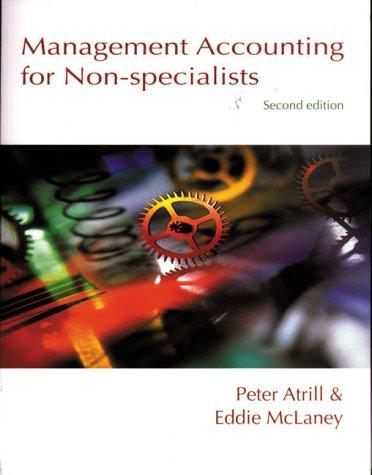Question
The COVID-19 pandemic is overwhelming the functioning and outcomes of educational systems all over the world. It affects pupils and students, although at different degrees
The COVID-19 pandemic is overwhelming the functioning and outcomes of educational systems all over the world. It affects pupils and students, although at different degrees depending on multiple factors including the country, region or districts where they live. While well-resourced countries have succeeded in managing the consequences of the COVID-19 pandemic on their educational systems by providing innovative systems for uninterrupted learning, the less endowed countries are struggling to cope with the situation. In the case of Ghana, the shutdown of schools on 15th March 2020, compounded by the associated public health and economic crises, posed major challenges to students and their teachers. While we do not know the exact impacts, we do know that academic work, especially, in pre-tertiary institutions has been negatively affected by the pandemic. In contrast, most of the public tertiary institutions resorted to the use of several virtual/electronic platforms such as Zoom, Google Meet, Microsoft teams, Google Classroom, Moodle and the likes for teaching and learning. It is worthy to note that using virtual platforms for academic work (lectures, assessment, etc) has its own challenges. In order to address the challenges associated with the use of virtual platforms for lectures among students in Ghana, the government has contracted NAKQUAYE Consult to conduct a study to ascertain the consequences of access to internet facility, reliability of the internet facility, cost of data, type of internet service provider and access to smart phone/laptop on the usage of virtual platforms for lectures using undergraduate students of University of Professional Students, Accra as a case study. A total number of 4,000 undergraduate students considered for the study are drawn from six departments comprising Accounting, Banking and Finance, Administration, Marketing, Public Relations and Information Technology. As the principal research officer of NAKQUAYE Consult: a. Formulate a research topic and state the dependent and independent variables. [4 marks] b. State the general objective and two specific objectives for this study. [3 marks] c. Based on the specific objectives identified, state two research hypotheses, both the null and the alternative. [2 marks] d. Identify the type of research approach to be adopted and justify it. [3 marks] e. Whatisthepopulationofyourproposedstudyandthesamplingtechnique(s)tobeadopted in selecting a sample size of 600? Justify the sampling technique(s) to be used. [3 marks] f. Indicate the type and sources of data you will use for the study. [2 marks] g. Assuming you will have to collect data from the respondents directly, describe the instrumentation you will use. [3 marks] TOTAL (20 MARKS)
Dumpusi is a rural community bedevilled with long standing land and chieftaincy conflicts. Anyone born in this community in the last hundred years has never experienced peace. These conflicts have affected many aspects of the people of Dumpusi. The Ministry for Chieftaincy and Traditional Affairs intends to conduct a research into how conflicts affect the lives of rural folks of Dumpusi. You are asked to conduct a qualitative research that will address the aim of the study. a. Suggest an appropriate qualitative topic for this research. [1 mark] b. Formulate two specific research objectives and two research questions for this study. [4 marks] c. Justify the appropriateness of a qualitative research design for this study [2 marks] d. What method(s) of qualitative data collection will you use for this study? Justify your choice of method? [2 marks] e. Design a topic-based interview guide to be used in this study, including two main questions and three sub-questions (probing questions) pertaining to the specific research objectives. [6 marks] f. Which sample size will be appropriate for this study based on the qualitative research design? [2 marks] g. Which of the following qualitative analyses (content or thematic analysis or narrative), will be applied in analyzing the data and why?
Step by Step Solution
There are 3 Steps involved in it
Step: 1

Get Instant Access to Expert-Tailored Solutions
See step-by-step solutions with expert insights and AI powered tools for academic success
Step: 2

Step: 3

Ace Your Homework with AI
Get the answers you need in no time with our AI-driven, step-by-step assistance
Get Started


